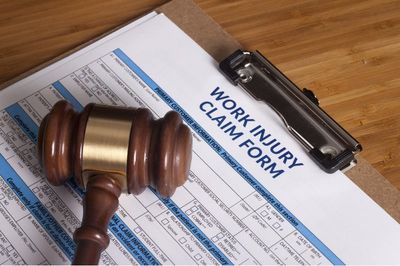
Most federal workers are familiar with the workers’ compensation program, operated by the Office of Workers’ Compensation Programs (OWCP).
The OWCP allows for workers who suffer a work-related injury to obtain medical and income-replacement benefits while they are unable to work.
What fewer people know, however, is that federal employees can also obtain workers’ compensation for mental health disorders as well.
Read on to learn more about when you can get workers’ comp for stress and anxiety.
If your federal employment is responsible for causing or exacerbating a mental health condition, you may be eligible for workers’ compensation benefits.
At the Law Office of Aaron D. Wersing, we proudly help government employees who were injured on the job obtain the benefits they need and deserve.
With extensive experience handling a wide range of workers’ compensation cases, including many involving mental health diagnoses, the Law Office of Aaron D. Wersing is well-equipped to effectively handle your claim.
Stress and Anxiety in the Workplace
Stress
Stress is the body’s normal response to emotional or physical tension.
In some cases, stress can help you overcome obstacles that you may not have otherwise been able to overcome.
However, in larger amounts, stress can be detrimental to a person’s physical and mental well-being.
According to a recent survey done by the American Institute of Stress, 80% of workers experience high levels of stress in the workplace.
And roughly a quarter of all participants indicated that their job was the primary source of their stress.
Of course, this may not come as news, as every job can occasionally be stressful.
However, there is a point where the everyday stress of a job crosses the line and becomes something more damaging.
Anxiety
Generalized anxiety disorder is a mental health condition in which someone displays excessive anxiety or worry on most days, for a period of at least six months.
Generalized anxiety disorder often seriously interferes with someone’s ability to live their life the way they intended.
For example, common symptoms of a generalized anxiety disorder include the following.
- Irritability,
- Drowsiness,
- Inattentiveness,
- Feeling on-edge,
- Muscle tension, and
- Sleep problems.
Panic attacks are another form of anxiety disorder in which someone experiences unexpected periods of intense fear that come on quickly and reach their peak within minutes.
Symptoms of a panic attack include:
- Heart palpitations,
- Trembling,
- Shortness of breath,
- Sweating,
- Feelings of doom, and
- Feeling out of control.
Panic attacks can be very scary and sometimes require immediate medical attention.
Can You Get Workers’ Compensation for Stress and Anxiety?
Yes, federal workers can obtain workers’ compensation benefits for stress and stress-related conditions such as anxiety.
However, there are a few things to keep in mind when considering filing an application for workers’ comp for stress and anxiety.
If you have a diagnosis of anxiety, you will have an easier time obtaining benefits than if you are basing a workers’ compensation claim on stress alone.
However, you will still need to show that your anxiety was either caused by your job or that your job exacerbated your existing case of anxiety.
Applying for workers’ compensation benefits for stress is even trickier because there is often no diagnosis.
When it comes to getting workers’ compensation for stress, consider the following questions.
1. Is The Stress Severe?
Regular, everyday stress is not the type of stress that the OWCP is concerned with.
Stress is a normal part of almost every job, yet not everyone can rightfully file a workers’ comp stress claim.
Thus, to be eligible, you must show that your occupational stress is severe, to the point where it is more than you can withstand.
2. Is Your Job Objectively Stressful?
If you find your job to be very stressful, but your colleagues do not, you may have a harder time qualifying for workers’ compensation benefits.
This is because you must show that your stress is objective to obtain benefits. This means that others in a similar situation experience the same level of stress.
So, if you are particularly susceptible to the stressors of your workplace, you may have a harder time obtaining workers’ compensation benefits for stress.
3. Is Your Stress Job-Related?
To succeed in any workers’ comp stress claim, you must show that your injuries (physical or emotional) are related to your occupation. Stress is no exception.
In fact, it is actually more difficult to prove stress is job-related because most people have other sources of stress in their life.
For example, the OWCP may claim that your stress was caused by genetic factors or issues outside the workplace.
Are You Suffering Severe Stress or Anxiety Related to Your Federal Employment? We Can Help You
If you are a federal employee and are currently suffering from stress or anxiety, contact the workers’ compensation lawyers at the Law Office of Aaron D. Wersing for immediate assistance.
At our federal workers’ compensation law firm, we represent federal employees in all types of work injury claims—including those involving mental health conditions such as stress and anxiety.
Unlike many other local employment law firms, we represent only federal employees, giving us an unparalleled knowledge of the laws and regulations that govern our clients’ cases.
To learn more, and to schedule a consultation, give us a call today. You can also reach us through our online contact form.

